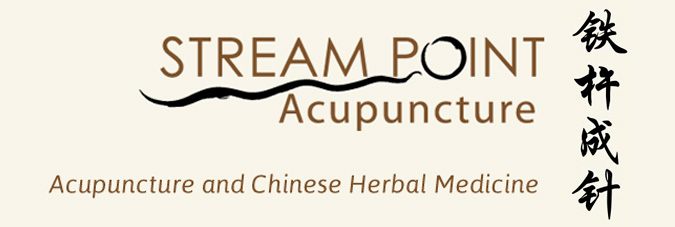 Stress is an everyday fact of life that simply can’t be avoided. In fact, I would bet that not a day goes by where you don’t hear that word. But what is stress exactly? Is it a thing? A feeling? What is not up for debate though, is that we’re all experiencing it at extreme and unhealthy levels, and we need to transform it into something more healthy and productive.
Stress is an everyday fact of life that simply can’t be avoided. In fact, I would bet that not a day goes by where you don’t hear that word. But what is stress exactly? Is it a thing? A feeling? What is not up for debate though, is that we’re all experiencing it at extreme and unhealthy levels, and we need to transform it into something more healthy and productive.
Over the next few weeks, I’ll be releasing a series of blogs on the topic of stress. We’ll start by examining what exactly stress is and how it affects us. Once that is out of the way, we’ll focus on some of the major techniques that can be used to manage stress like physical relaxation, meditation, mind/emotional exercises, nutrition, and exercise.
What is Stress?
To start, we need to clarify the context in which we use the term “stress”…
- As a “thing” stress is any life change we must adapt to – another term for this is “stressor”. Stressors can manifest physically, mentally, emotionally, socially, and in all degrees of severity. They can come in the extremes of physical danger, illness, and trauma – or more abstract like falling in love or achieving a goal. It can also be small things like managing time, meeting a deadline, sitting in traffic etc.
- As a condition (i.e. “I’m feeling stressed”) stress is any assortment of symptoms in mind and body that result from excessive exposure to stressors, combined with an inability to be resilient to their effects.
It’s important to remember that not all stress is bad. In many cases, it promotes maturation and provides motivation to work towards goals. In the end, it’s how we respond and adapt to these life changes that will determine how stress will impact our health and our lives.
Sources of Stress
Stress comes from all sorts of places, but for simplicity we can identify 4 main sources
- Physical: aging, sleep, activity, diet, illness, trauma
- Environmental: weather, pollen, noise, traffic, pollution
- Social: deadlines, finances, work/job, relationships
- Mental/Emotional: thoughts, feelings, attitudes, belief systems
The Stress Response
So what exactly does stress do? You have probably heard of the infamous “fight or flight” response, which is a series of biochemical changes in the body that prepare you to deal with a present threat (the proverbial tiger). This response is also called the “stress response” and is primary controlled by a mechanism of the nervous system called the Hypothalamic-pituitary-adrenal (HPA) axis. Any time a threat is presented (real or imagined) the cerebral cortex sends an alarm to the hypothalamus, which then activates the sympathetic nervous system, which causes the pituitary and adrenal glands to release hormones like adrenaline, noradrenaline, and cortisol. Some of the hallmark effects are:
- Increased breathing, heart rate, and blood pressure
- Pupil and bronchial dilation
- Muscular tension, and increased blood flow to larger muscle groups
- Decreased activity in the digestive tract
Once the threat dissipates and the “fight or flee” is complete, the nervous system ceases to signal alarm and the stress hormones will be metabolized out of the body. In turn, the opposing parasympathetic nervous system activates and releases hormones like serotonin and neuropeptide Y to return the body to its natural state; this is called the “rest and repair” response.
*FACTOID: Recent studies have connected neuropeptide Y with stress resiliency.
During the times of our ancestors, the stress response was useful for ensuring survival. However, today we aren’t presented with as many survival threats. Instead, we’re presented with unrelenting chronic stressors, like the ones listed above; and therein lies the problem. Even though humans have evolved, our nervous systems have not evolved to distinguish between a potential tiger attack and argument with our partner. When we’re arguing with a partner or sitting in traffic, our nervous system still perceives a survival threat and elicits a full-blown stress response. As long as our minds perceive a threat (real or imagined, mild or severe) our bodies will remain in this state, which eventually leads to a heap of health and wellness problems.
How Stress Affects Us
When we’re constantly in the stress response, and we’re neither fighting nor flying, we become stuck in what we call the “freeze state”. In the “freeze state” the stress response is constantly signaling your body to release stress hormones, which will only accrue since they haven’t been metabolized out with a fight or flee. Eventually, the levels of these hormones become toxic in the bloodstream, which impacts every system in the body. Conditions such as allergies, asthma, immune deficiency, diabetes, hypertension, heart disease, infertility, indigestion, acid reflux, irritable bowel syndrome, insomnia, depression, anxiety, chronic pain, arthritis, and even cancer have all been linked to stress. And let’s face it, none of us “feel well” when we’re being bullied by stress, and this spills over into our every day lives: our relationships, jobs, and even hobbies and fun activities.
There Are Solutions
Despite the slightly drab focus of this blog, I want to assure all of you that stress doesn’t have to control you. There are MANY ways to help yourself adapt to the changes of life, and train your nervous system to be less “extreme”. What it comes down to is looking at your life, and figuring out what you need to be doing to make yourself more fluid and adaptable. What works for one person may not work for you, so you have to listen to your body and work towards things that make you look and feel good. You’re not alone in this, and we at Stream Point Wellness are here to help you every step of the way!

